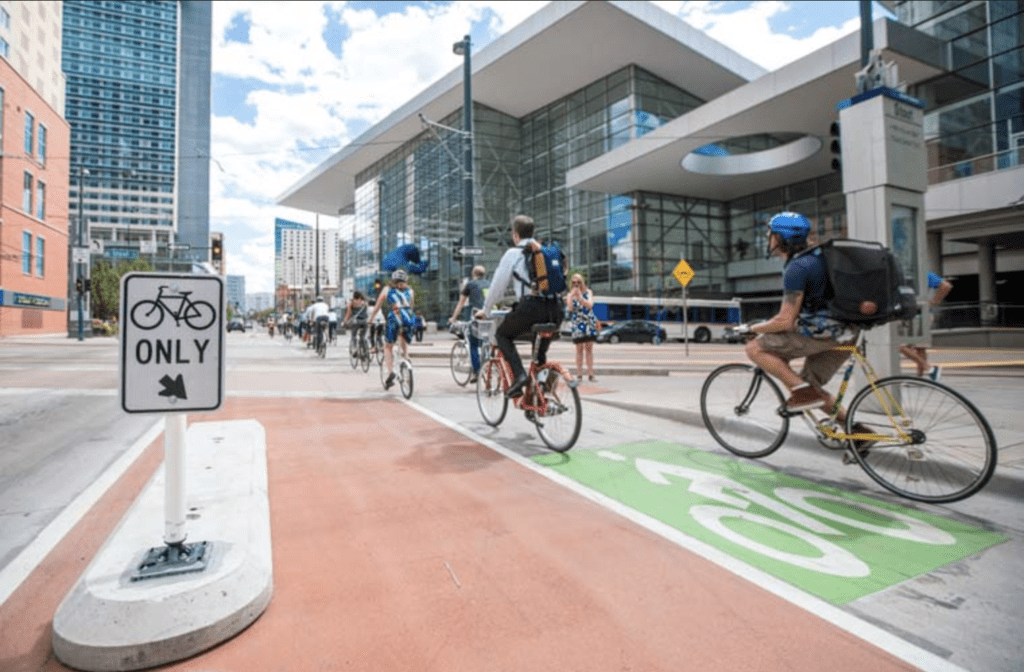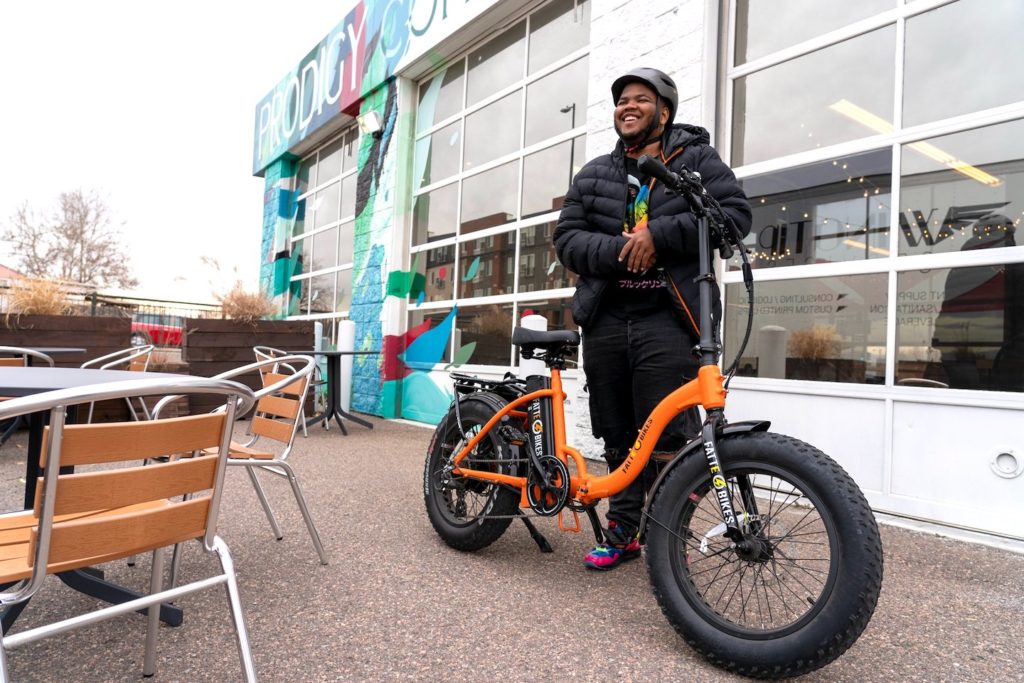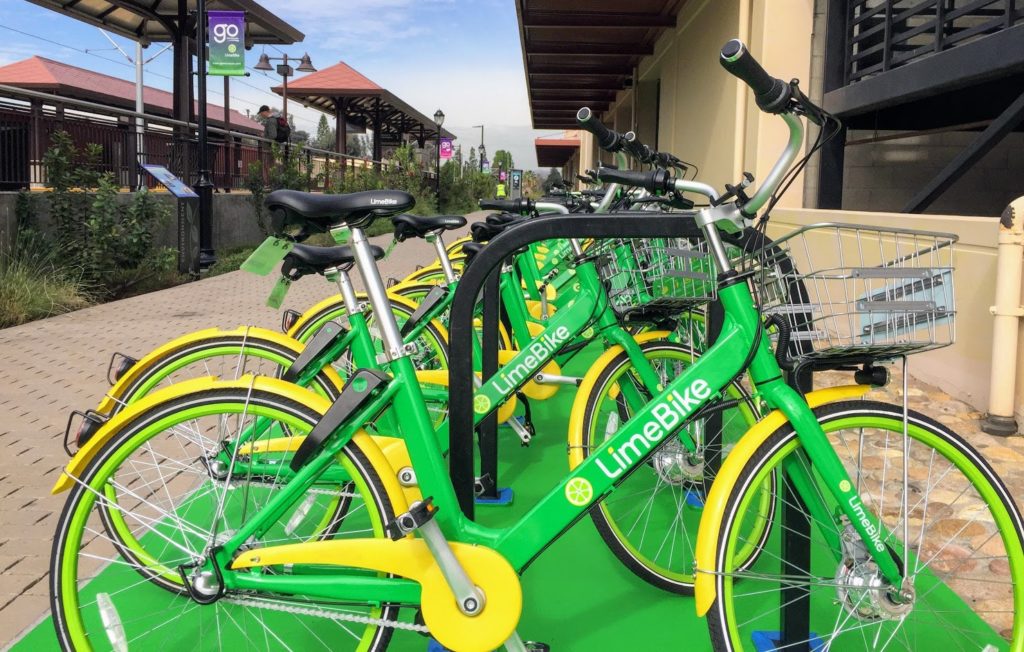• Flip Book• eNews • eBikes • eAccessories • eCargo • eCities • eSystems • eAdventures • eBikeTests • eFeatures •
eCities – Denver, Colorado, Population 722,699
October 25, 2023 - Denver, the capital of Colorado, is rapidly becoming one of the USA’s most bicycle-friendly cities. Nicknamed “The Mile-High City,” it boasts a total of 455 miles of bikeways, including on-street and off-street facilities.

Over the past five years, the city has installed 159 miles of new high-comfort bicycle facilities, including protected bike lanes, surpassing its goal to build 125 miles of new bikeways by the end of 2023.
Currently, about 8% of residents commute by cycling or walking. Through the Denver Moves initiative, the city plans to achieve a 15% modal share of bicycling and walking for commuters by 2030.
To support the Denver Moves cycling agenda, the city’s Department of Transportation and Infrastructure (DOTI) will speed up implementation of its bike program by coordinating the striping of bike lanes with street paving operations. DOTI will also update its recommended bikeways map.

Denver’s hugely popular e-bike rebate initiative is part of the city’s Climate Action Rebate program, offering $400 on e-bikes and up to $1,400 on e-cargo bikes. The program took off in April 2022 with over 6,500 residents benefitting to date. Almost half of the redemptions have been for e-cargo bikes.
The e-bike rebate program has displaced an estimated 4.1 million vehicle miles, eliminating 1,447 tons of greenhouse gas emissions annually and has saved Denver residents $1 million in fuel and maintenance costs. In fact, the state of Colorado has followed Denver’s lead and launched a $12 million e-bike rebate program, the USA’s largest state-wide initiative of its kind.

Implemented in May of 2021, Denver’s Shared Micromobility Program works with Lyft and Lime to provide about 6,000 bikes and scooters, including almost 600 each of e-bikes and e-scooters, for residents, employees and visitors to get around Denver without a car.
Other initiatives have included the Elevate Denver Bond Program which allocates funding to design and construct nearly 50 miles of the bikeway network vision; Neighborhood Bikeways which are low-volume, low-speed streets designed to prioritize people who are biking, walking and rolling; and Community Transportation Networks to plan and build low- stress bike projects to connect the city.
In addition, the Mayor’s Bicycle Advisory Committee (MBAC) advises on all matters relating to the use of bicycles as a means of transportation and recreation, including recommendations on the planning, design and development of bike projects.







